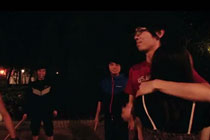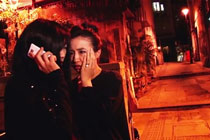
The Devil Teacher
Miss Wong was described as a “devil teacher” by her students. How much of a “devil” is she? Does her “devilish” behaviour indeed break the law?

The Wrong Way to Fight Against Bullying
Ho Yin, a small and weak boy, was often bullied by his classmate, Chi Chung and his peers. Ho Yin became sick of being bullied and tried to defend himself, but the method he used was wrong.

Mandatory Helping Hand
Sze Man, a Form 4 student, always picked on Ka Ka, a Form 1 student. Sze Man asked Ka Ka to give her some money and a birthday present, but Ka Ka kept refusing Sze Man’s requests, what would happen to Ka Ka?

The Triads
Tsz Kit and his girlfriend were chatting in a park late at night. Some gang members were in the park, too. What might happen?

Midnight Battlefield
Brian and Chi went to Lan Kwai Fong one night to have a good time with their girlfriends. Dragon and his friend Hung Chi had been drinking and were hanging around on the street. Dragon decided to hit on (try to flirt with) Brian’s girlfriend. A dispute broke out and led to a street fight between the two young men…